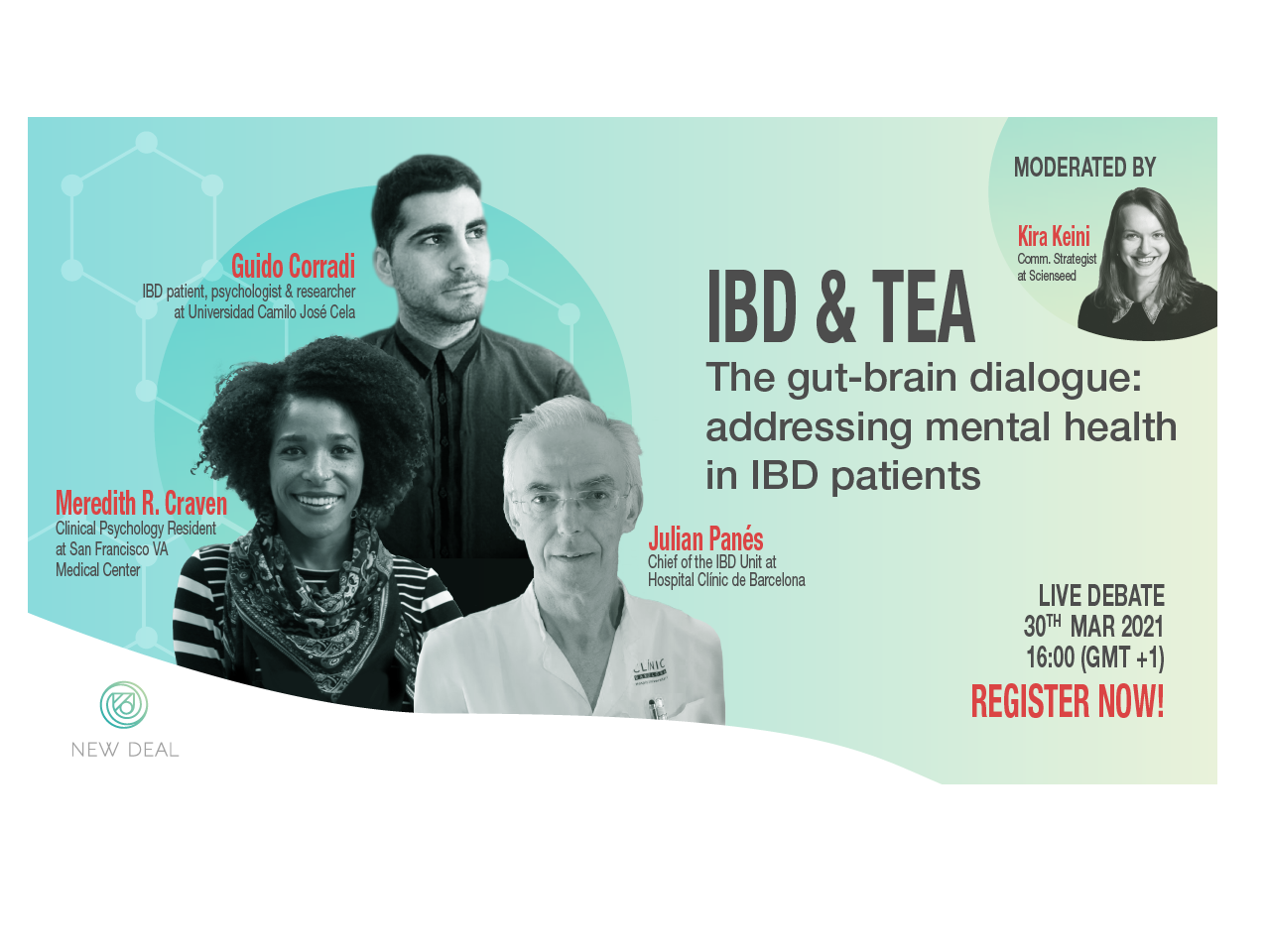The gut-brain dialogue: upcoming event brings together experts on the psychological experience of bowel disease

Dr Guido Corradi is an IBD patient, psychologist, and researcher at the University Camilo José Cela (Spain): “Mental health is a key factor. You cannot think about your chronic condition without taking your mental health into account. Mental health, in my own personal experience, affects the course of the illness through behaviour and is affected by the illness itself. As an example, in 2016, I was under one of my biggest episodes of colitis and also under a stressful situation at home. Both factors interacted and led to a deterioration in my health.”
Dr Meredith R. Craven is a clinical psychology resident at San Francisco VA Medical Center (USA). “Patients’ mental health should be considered when treating IBD as it is a fundamental part of one’s health and subjective well-being. We also know that patients with IBD are at increased risk for mental health conditions like depression and anxiety. When patients have a mental health condition it can worsen their IBD symptoms and make it that much harder to do what’s important to them – like spend time with people or take medications.”
Dr Julian Panés is Chief of the IBD Unit at Hospital Clínic in Barcelona (Spain) and partner of the New Deal project. “The situation is heterogeneous in different countries and different IBD Units, but in many IBD Units, we are short of resources to help patients improve their mental health. Integration of a psychologist in the multidisciplinary team would be ideal, or at least having sufficient time in the outpatient clinic to address the issue of mental health and make recommendations as IBD specialists on life habits or specific psychological referrals.”
The online event will take place on March 30th at 16:00h CET and will be moderated by Kira Keini, from the science communication company Scienseed, a partner of the New Deal project. Register for free at this link to receive a Zoom invitation: https://docs.google.com/forms/d/e/1FAIpQLScoXvC9PPN8PT0csJvvAWBiUy6-ePFNVNu1_5zFW3bt4Uep5w/viewform(opens in new window)
Keywords
IBD, psychology, mental health, colitis, crohn's


